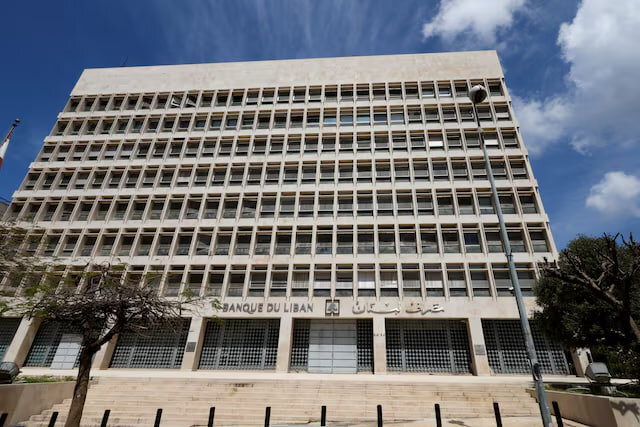Under US orders, Banque du Liban demonizes Al-Qard al-Hassan

BEIRUT — The Banque du Liban has announced banks and financial institutions subject to its license are prohibited from dealing with Al-Qard al-Hassan, Hezbollah’s solidarity association.
U.S. Special Representative Thomas Barrack quickly praised the move, considering it a “step in the right direction”. He also claimed that it represents “a gain for the Lebanese and for international efforts to restore confidence in their banking sector.”
Banque du Liban’s circular was preceded by the U.S. Treasury Department’s announcement that the Office of Foreign Assets Control (OFAC) had imposed sanctions on seven personalities and one entity for their alleged ties to the Al-Qard al-Hassan.
Michael Falkender, the Treasury undersecretary, stated that “as Hezbollah seeks to rebuild its operations, the Treasury Department remains committed to dismantling its financial structure and preventing it from reconstituting itself.”
“Given that the action plan required of Lebanon by the Financial Action Task Force (FATF) requires addressing the situation of the unlicensed financial sector... and to avoid the possibility of imposing additional stringent measures against the financial and economic sectors in Lebanon [...] banks, financial institutions, and other institutions licensed by the Banque du Liban, as well as financial intermediary institutions and collective investment funds, are prohibited from engaging in any direct or indirect dealings, in whole or in part, with exchange institutions, money transfer companies, associations, and unlicensed entities such as Al-Qard Al-Hassan,” a circular published by the Banque du Liban stated.
Banque du Liban threatened that failure to comply with the decision could expose those it called “perpetrators” to legal prosecution, warning of measures that could include suspension or withdrawal of licenses; freezing of accounts and assets; and referral to the Special Investigation Commission.
The move by Banque du Liban’s governor, Karim Saeid is not unusual as he is part of the anti-Resistance team. Rather, it represents a practical commitment to the demands of the U.S. spy den (embassy) in Beirut, which had a major hand in his appointment.
For its part, Hezbollah was not surprised as Saeid had previously paved the way for the move, justifying it by claiming that the Lebanese banking system cannot contravene Washington’s decisions.
Experts are reassured that the goal is to intimidate the Resistance’s popular base as the Qard al-Hassan is not affiliated with any of the financial institutions or banks licensed by Banque du Liban.
In any case, the Qard al-Hassan is not a financial institution, but rather a developmental solidarity program; it does not charge any interest on what people deposit. Rather it serves as collateral for the loan (personal deposits, whether cash or gold).
This means that the loan is free, except for the cost of storing the gold and administrative procedures.
During the intensive September-November U.S.-led Israeli aggression against Lebanon, the Wall Street Journal quoted Israeli officials as saying that “the raids on the branches of the Al-Qard al-Hassan Foundation were aimed at weakening Hezbollah’s ties with its community,” after targeting several locations, allegedly Hezbollah’s fund storage centers.
Then, anti-Resistance media (the U.S. embassy’s mercenaries) launched a hostile camping, allegedly searching for Hezbollah’s money storage facility under the Sahel Hospital building. This was in addition to the bombing of exchange offices, allegedly facilitating the transfer of funds to Hezbollah.
In parallel, several figures suspected by the enemy of transferring funds to the Lebanese and Palestinian resistance front have been liquidated from April 2024 to the present day, not to mention the humiliating searches of the luggage of Shia travelers (especially those arriving from Iran, Iraq, or Africa) in search of funds allegedly belonging to Hezbollah.
It is worth noting that Al-Qard al-Hassan is the channel through which Hezbollah provided compensation for repairs and shelter to those affected, approximately $1 billion, covering more than 250,000 families.
Banque du Liban’s circular is merely a new reason to affirm the legitimacy of the Resistance; the popular base of the Resistance, which is monitoring the genocidal massacres against the Druze and Alawites, will not surrender or surrender its tools of power in a fierce existential battle.
The so-called U.S. reforms are to restore the powers of the banks’ robbers (with immunity from the U.S. spy den in Beirut) who looted the deposits of the Lebanese people, whose thefts have been disrupted the Al-Qard Al-Hassan institution.
Leave a Comment